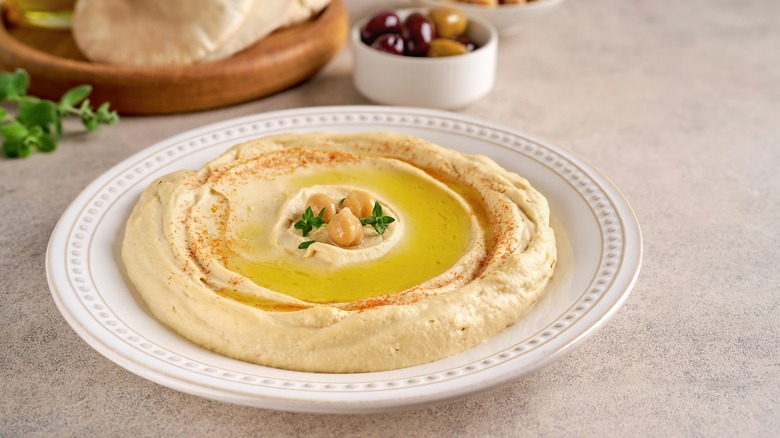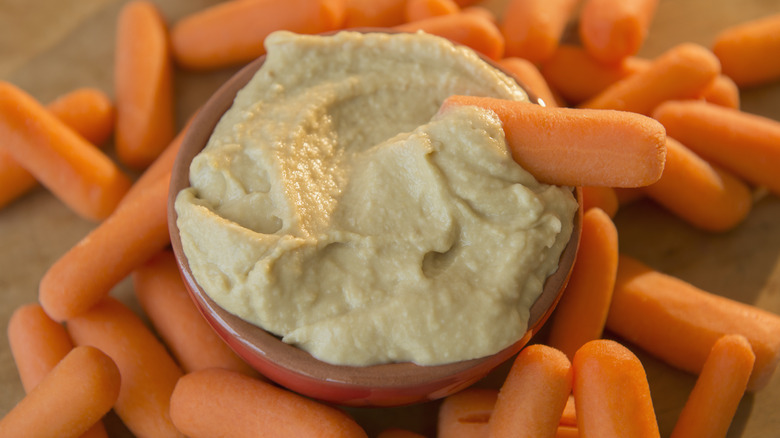Can You Freeze Hummus?
If there is one thing to know about hummus, it's that the creamy chickpea paste is more than just a dip. It is an incredibly versatile ingredient that can be smeared between wraps, burgers, and sandwiches, blended into salad dressings, turned into sauces, or even transformed into high-protein desserts — there are so many delicious possibilities.
A jar of hummus can go a long way, making it's a handy ingredient to have in your kitchen at all times. Sadly, you don't have very long to eat store-bought hummus once it's opened, as it can spoil in a week or less in the refrigerator. Homemade versions have an even shorter shelf life and will last for four days at most. Luckily, there is a way to make the spread last for longer, and that involves freezing it (yes, you absolutely can freeze hummus!). This will extend its lifespan for up to four months.
One way to freeze hummus is to transfer all of it into a single airtight container. Pop that into a freezer-safe bag as an extra measure to prevent it from absorbing the scents of other foods next to it. Alternatively, you could also divide the dip into small, single-serve scoops, line them on a tray, and freeze them individually. Once they are solid, pack the hummus balls in individual bags and refreeze them. You can then take out exactly what you need without having to thaw the whole batch of hummus every time you need just a spoonful.
How to thaw hummus
While it is possible to freeze hummus, it may lose moisture and dry out over time. This is why it helps to add a thin layer of olive oil on top of the spread before freezing it — just enough that the hummus stays moist but not so much that it alters the flavor and gives it a greasy aftertaste.
Plan ahead and transfer the hummus to the refrigerator to thaw the night before you intend to eat it. If that seems like too long, pop the hummus in an airtight bag and soak it in room-temperature water for a few minutes. Or, use your microwave's defrost function and run it at one-minute intervals until the frozen spread thaws. Then, stir it until the olive oil fully incorporates into the hummus, restoring it to its original consistency.
One thing that you should know is that while both homemade and store-bought hummus can be frozen, the latter fares much better since it usually has preservatives to stabilize it. It's also easier to freeze plain hummus than flavored versions whose taste may alter with time. If you do find that the frozen spread lacks the same zing that it had before, consider whisking in some lemon juice (not the same as lime juice) and adding minced garlic on top. But once you've thawed your hummus, make sure to use it up within five days — it's not a good idea to freeze it again this time around.


